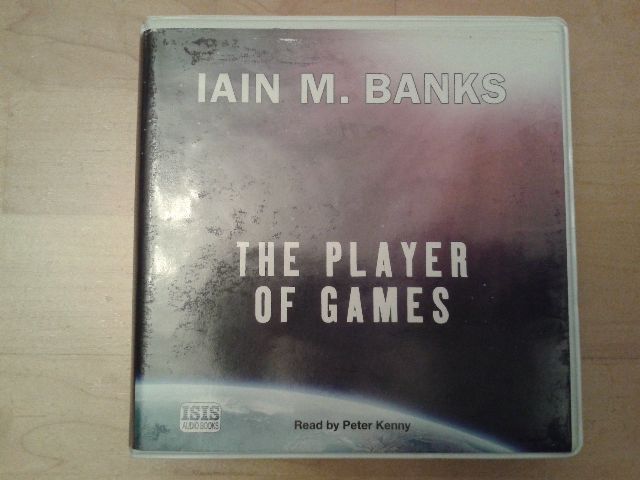

This is pretty much how the Culture (or at least Special Circumstances) acts toward its own people and other civilizations respectively. While his Azadian opponent is consistently ruthless in his playing, Gurgeh's style involves a generally less aggressive attitude, but when he comes up against an opponent that's too smart to play him on his own terms, he has to play as the Culture Militant geared up for war and ready to kick ass in the name of the greater good, with occasional bursts of ruthless sacrifice of his own pieces and relentlessly violent moves against his opponent. As opposed to his opponent who plays like he's the Azadian Empire. Beware the Nice Ones: As always, the Culture's hat, and in this book, it's indicated by a scene at the end where Gurgeh realizes he plays like he's the Culture.

As it happens, the Culture doesn't even bother to invade in the end, as the Empire collapses all on its own.

Sure enough, Nicosar goes nuts when it becomes apparent Gurgeh is about to beat him, destroying himself and the Empire's entire leadership in a panic. They worked out that Gurgeh will be able to beat the Emperor (who knows exactly how powerful the Culture are) at Azad, and task Flere-Imsaho with telling him that the unaware game-player is acting as the Culture's representative, and if he wins, they're invading, expecting him to Freak Out when his defeat looks inevitable.

The Player of Games provides examples of the following tropes: It tells the story of Jernau Morat Gurgeh, an expert game player, who is recruited/blackmailed by Special Circumstances into traveling to the Empire of Azad, a brutal regime where one's social rank is determined by playing the highly complex game of Azad. Banks and the one that's generally considered the best introduction to the series note Its predecessor, Consider Phlebas, is excellent, but doesn't so much as "introduce" you to The Culture as throw you at it. The Player of Games is the second Culture novel by Iain M.


 0 kommentar(er)
0 kommentar(er)
